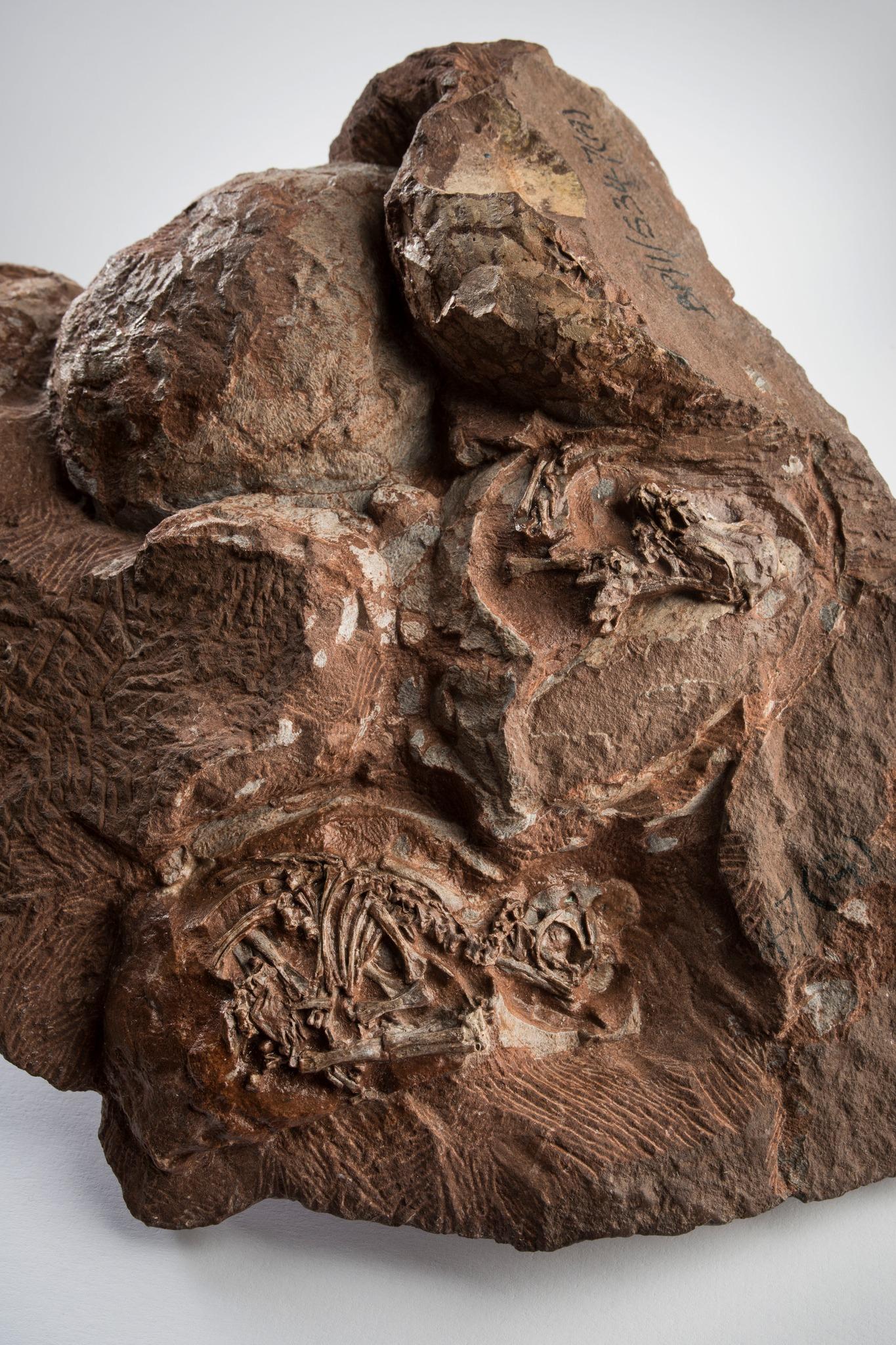The penultimate object in the Wits Centenary Objects Exhibitions is a Massospondyus carinatus dinosaur egg clutch.
In August of 1976, a clutch of seven fossil eggs was collected from the side of the road in Golden Gate Highlands National Park, in the Free State of South Africa. Dating back to the Early Jurassic, these eggs, and the embryos they contain, turned out to be some of the oldest dinosaur eggs in the world, dating to ~ 200 million years ago.
Massospondylus carinatus egg clutch (Brett Eloff)
Massospondylus carinatus were plant-eaters and are ancestors of sauropod dinosaurs like diplodocus. Fully-grown adults would have walked on two legs, measured about five metres from nose to tail, and had long necks with small heads.
Embryos usually do not preserve well in the fossil record, but this clutch did and the well-preserved tissue has allowed new understanding of the developmental stages in the species.
Lecture by the vertebrate palaeontologist who studied the eggs, Dr Kimi Chapelle at 10am
"Jurassic Start: getting to know some of the world's oldest dinosaur eggs"
Since the first publication in 1979, the clutch has been the centre of numerous studies to help scientists understand aspects of dinosaur biology and past ecosystems. In this talk, Dr Chapelle will review the history of the research undertaken on the specimen, the array of methods and technologies used to do so and the resulting key discoveries. These include aspects of embryonic development, growth strategies, locomotion, parental care, nesting behaviours and eggshell structure.
Dr Kimi Chapelle is a South African vertebrate palaeontologist who studies dinosaur growth and development. She currently holds a DSI-NRF GENUS Next Generation Palaeoscientist Grant at the University of the Witwatersrand, and recently completed a Kalbfleisch Postdoctoral Research Fellowship at the American Museum of Natural History in New York City. Her research has focused on basal sauropodomorphs. She explores how these creatures grew, moved, and evolved using a multidisciplinary toolkit comprising micro-computed tomography scanning, osteohistology, multivariate statistics, and functional and comparative anatomy.
Exhibition funded by Genus. In collaboration with the Evolutionary Studies Institute. 10 objects in 10 months – each on display for 1 exclusive day each month!
Tickets will be available on webtickets or at the door.
- R85 adults | R65 pensioners | R40 students and under 12s
- Lecture and viewing: https://www.webtickets.co.za/performance.aspx
- Viewing after 11am
- Enquiries: bookings.origins@wits.ac.za; tammy.hodgskiss@wits.ac.za
Disclaimer: Any views expressed by individuals and organisations are their own and do not in any way represent the views of The Heritage Portal.

